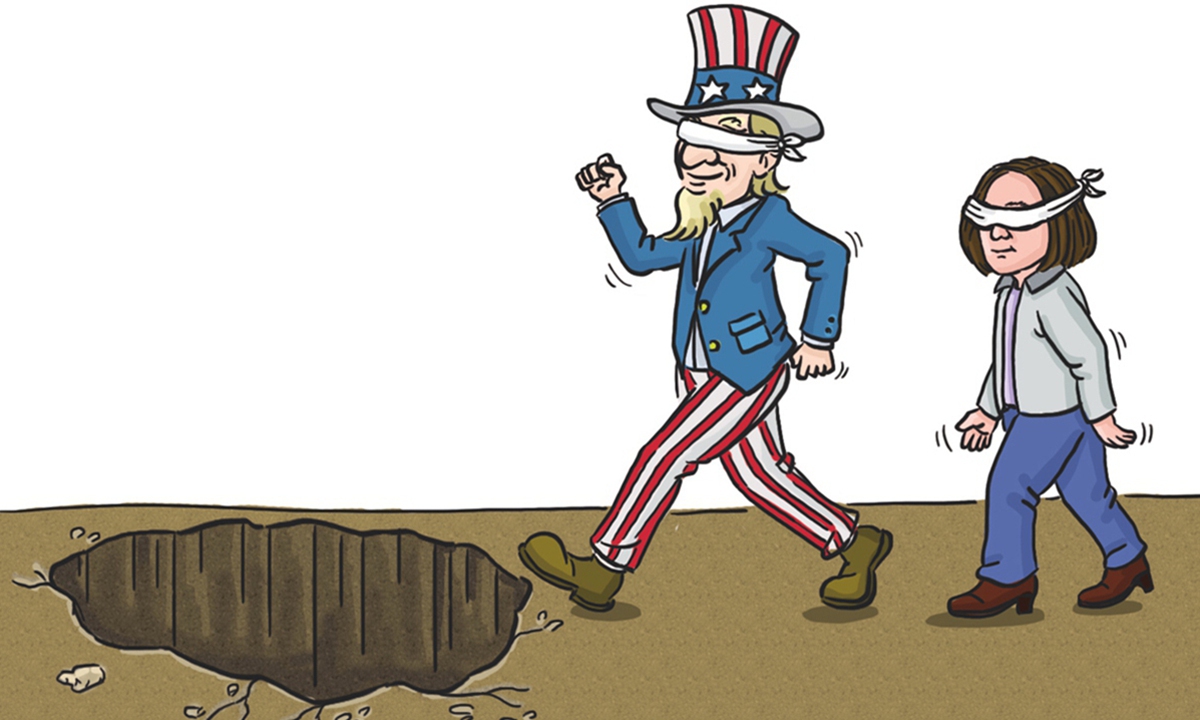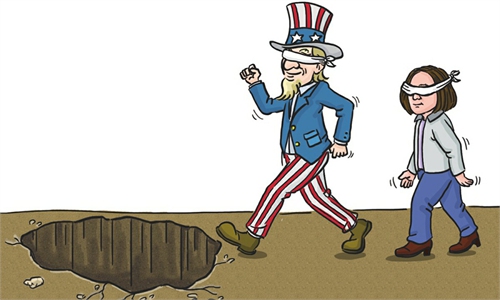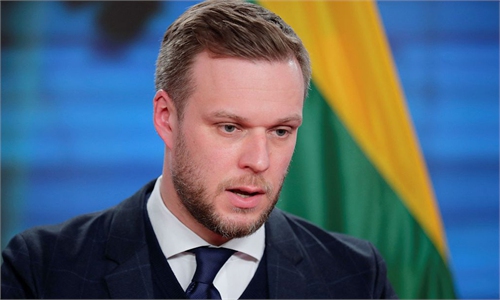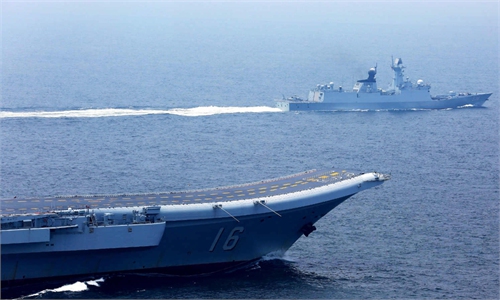US officials hyping Taiwan tensions for hegemony; PLA maintains readiness: expert
'Egocentric' US playing Taiwan card ahead of democracy meet

US Secretary of Defense Lloyd J. Austin III, delivers remarks at the 17th annual International Institute for Strategic Studies Manama Dialogue, on November 20, 2021 in Manama, Bahrain. Photo: VCG
The Chinese mainland will not take the initiative to take military action against the island of Taiwan, but if secessionist forces on the island cross the red line, the mainland is sure and capable of resolving Taiwan question through military means, experts noted, as US defense secretary Lloyd Austin claimed that the mainland's frequent military moves in the Straits are "rehearsals for military operations" against the island.
Austin warned that China's air incursions by fighter jets, bombers and other warplanes near Taiwan appeared to be rehearsals for military operations against it, Financial Times said in a report on Sunday.
"It looks a lot like them exploring their true capabilities and sure it looks a lot like rehearsals," Austin said in a speech on Saturday at the Reagan National Defense Forum, according to the report.
"We remain steadfast to our One-China policy," Austin said, but also to "our commitments of the Taiwan Relations Act to support Taiwan's ability to "defend itself."
Enhanced military moves do indicate that the mainland is enhancing combat preparedness for potential military conflicts in the region, but this is the result of some foreign forces such as the US instigating "Taiwan independence", Song Zhongping, a Chinese military expert and TV commentator, told the Global Times on Sunday.
The mainland will not take the initiative to launch a military operation, as military action would be the last resort for resolving the Taiwan question, Song noted.
According to the Financial Times report, Austin referred to Taiwan as a "country" in the Saturday speech.
"This revealed that some US officials deny the one-China principle in their bones," Song noted.
Four People's Liberation Army (PLA) J-11 fighter jets entered Taiwan's self-proclaimed southwest air defense identification zone on Tuesday, the defense authority on the island said in a press release on Tuesday, the last day of November.

US, Taiwan Illustration: Xia Qing/GT
This shows that PLA warplanes, in a rare move, achieved full attendance in missions in the region in November, Taipei-based Liberty Times Net reported, citing open radio communications and flight path records.
In November, Taiwan secessionist authority continued to collude with external forces to provoke Chinese mainland, such as visits by US lawmakers and a parliamentary delegation from Lithuania, Estonia and Latvia to the island, and a US warship transit in the Taiwan Straits.
When asked if China was going to invade Taiwan, US Secretary of State Antony Blinken told the Reuters Next conference on Friday "that would be a potentially disastrous decision." Blinken repeated Washington's position that it is "resolutely committed" to making sure Taiwan has the means to defend itself.
The head of Taiwan's defense authority Chiu Kuo-cheng also reiterated a principle of self-defense for Taiwan island on Friday, after the US and South Korea affirmed for the first time "the importance of preserving peace and stability in the Taiwan Strait" in a joint statement following a meeting between Austin and his South Korean counterpart Suh Wook on Thursday.
Although both sides noted self-defense of the Taiwan island, the US and the island have totally different states of mind. Rhetoric of US officials came out of an egocentric consideration while Chiu's expresses his helplessness.
"The US has not changed its strategic ambiguity on issues concerning Taiwan island. It is watching: if the situation favors it, it will intervene with all kinds of means; but if the opposite is true, it will abandon the island as a chess piece," Song said, noting that the US is a perfect egoist.
Chiu is clear about the US' strategy of ambiguity, so he is using self-defense to console himself, according to Song.
Exaggerating the possibility of military risks in the region is a "trick" used by the US in order to mobilize its allies, legitimize its arms sales to the island of Taiwan, and strengthen US hegemony in the Indo-Pacific region, experts noted.
Perfect egoist
The US government is increasingly playing the "Taiwan card" and is more explicit in supporting the "Taiwan secessionists". They have multiple purposes. "First, in the great power competition, American politicians deliberately play up the 'China threat' theory and play the 'Taiwan card' to contain the development of the Chinese mainland and to promote the rationale for the US presence in the Indo-Pacific region," Yuan Zheng, deputy director of the Institute of American Studies, Chinese Academy of Social Sciences, told the Global Times on Sunday.
"Second, the US wants to peddle value-based diplomacy, so they keep saying that the Chinese mainland is 'undemocratic' and Taiwan is 'democratic'," Yuan pointed out.
From the domestic perspective, US politicians are playing the "Taiwan card" for their own political interests, whether out of political correctness or due to wooing by the Democratic Progressive Party authorities, an observer added.
"The US is also preparing for the worst-case scenario as it is fully aware of the risks, but they didn't mention how US policies led to current situation," Yuan noted.
Observers said Austin and Blinken's remarks concerning Taiwan were actually a prelude to the upcoming "summit for democracy" to be held on December 9.
Taiwan island has also been invited to the summit and is listed among the total 110 participants as "Taiwan", among other countries, despite not being a sovereign country.
In response, the Chinese State Council Taiwan Affairs Office said "it's a mistake" and reiterated its firm opposition to any official interaction between the US and the island.
If some US politicians think that a few provocative statements against China or playing the "Taiwan card" can realize their goal of disrupting the mainland's development momentum, this only proves their ignorance and stupidity, observers noted.



